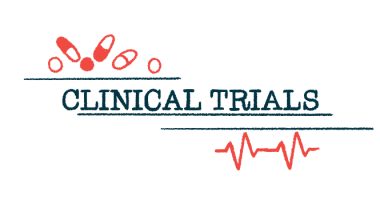Experimental Treatments for Angioedema
Deucrictibant
Deucrictibant, formerly known as PHA121, is an investigational small molecule being developed by Pharvaris as an on-demand and preventive treatment for hereditary angioedema (HAE) attacks. It comes in the form of an immediate-release capsule or an extended-release tablet.
Donidalorsen
Donidalorsen, formerly known as IONIS-PKK-LRx, is an antisense oligonucleotide therapy that’s being developed by Ionis Pharmaceuticals as a preventive or prophylactic treatment to reduce the rate of swelling attacks in hereditary angioedema (HAE). It is administered via a subcutaneous (under-the-skin) injection.
Fresh Frozen Plasma
Fresh frozen plasma is made from plasma, the clear part of the blood, and contains many proteins, including C1-inhibitor. It may be used in emergency rooms to immediately treat cases of life-threatening angioedema that do not respond to other treatments.
Gene Therapy
Gene therapy could be a viable approach for treating hereditary angioedema (HAE), which is mainly caused by genetic mutations in the SERPING1 gene. Although no gene therapy for HAE has yet been approved, a few have been evaluated in preclinical studies, and some have already been tested in people with the disorder in clinical trials.
Navenibart
Navenibart, formerly known as STAR-0215, is an antibody therapy that’s being developed by Astria Therapeutics as a prophylactic treatment to prevent swelling attacks in hereditary angioedema (HAE). It is administered via a subcutaneous (under-the-skin) injection.
Omalizumab
Omalizumab is an antibody-based therapy that’s used to manage some types of allergy-related conditions. It is not formally approved for the treatment of angioedema, but it may be used off-label in some patients. The therapy is administered via a subcutaneous (under-the-skin) injection.
Sebetralstat
Sebetralstat, formerly known as KVD900, is an investigational small molecule being developed by KalVista Pharmaceuticals for the on-demand treatment of hereditary angioedema (HAE) attacks. It is available in the form of film-coated or orally disintegrating tablets to be taken by mouth.
Tranexamic Acid
Tranexamic acid is a medication approved to treat certain bleeding conditions. Although it is not formally approved to treat any type of angioedema, tranexamic acid has been used off-label to prevent or treat swelling attacks in people with some forms of the disease. When used to treat angioedema, tranexamic acid usually is given in the form of oral tablets.





